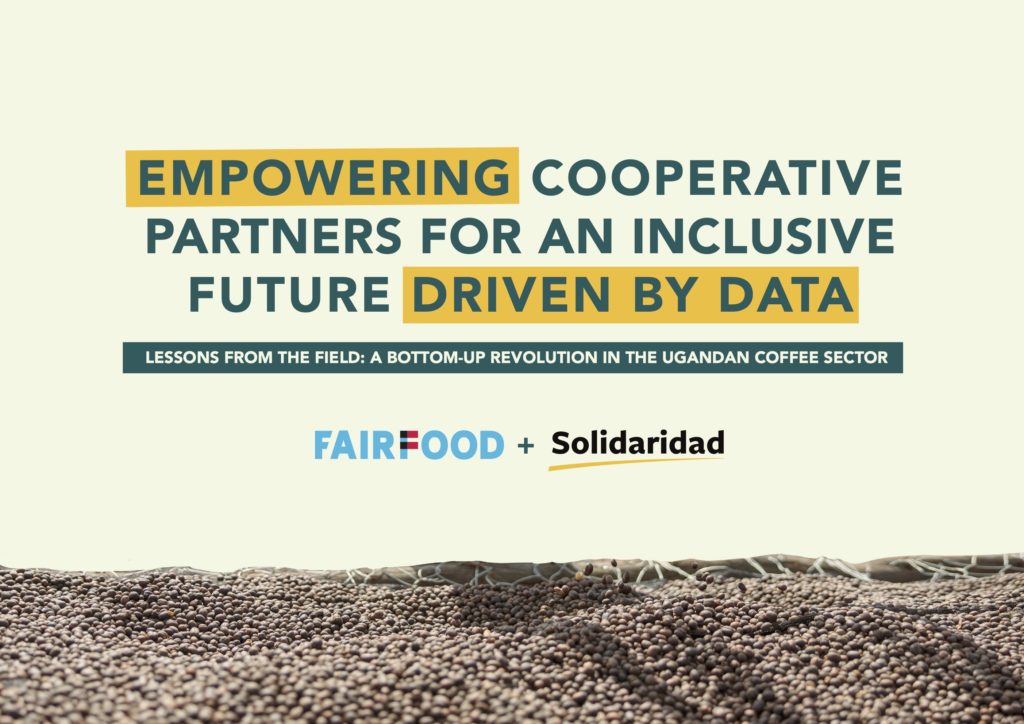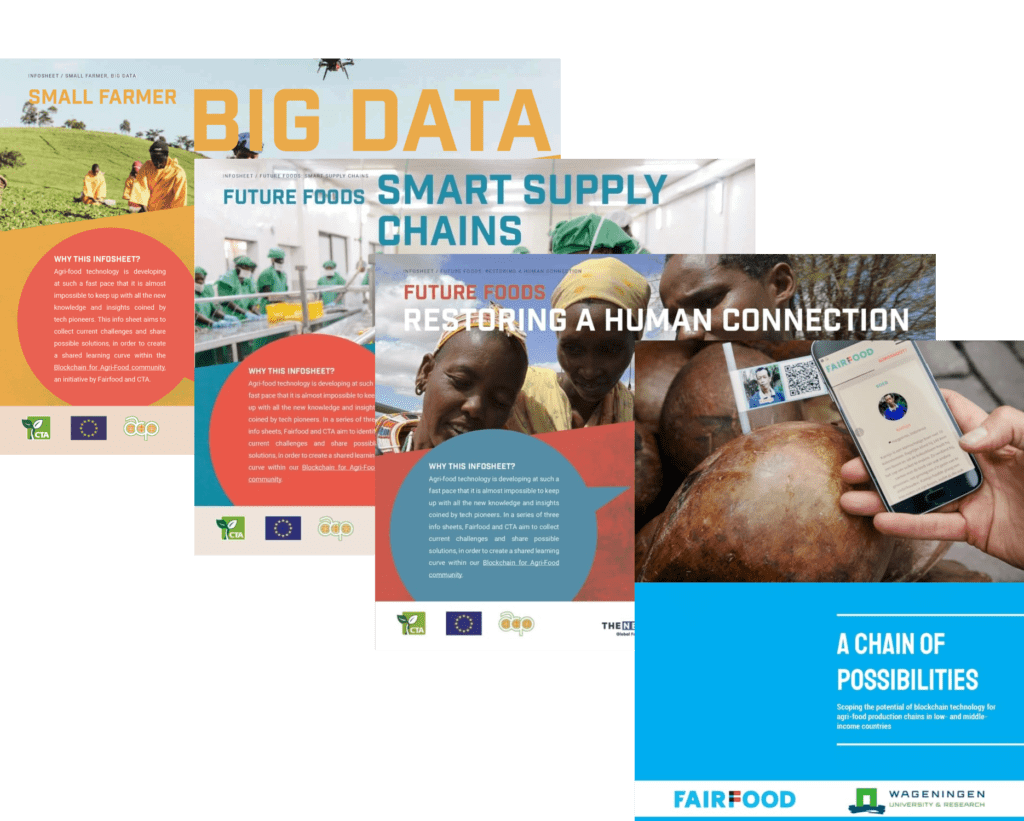Report: Empowering cooperative partners for an inclusive future driven by data
Navigating our RECLAIM Sustainability 5-year programme, Fairfood and Solidaridad’s new report shares insights from our journey to establish traceable Ugandan coffee in European supermarkets. More than lessons, we spotlight the backbone of a bottom-up revolution: engaged cooperatives actively driving traceability at farm level, shaping the success of a positive impact story.
Jump to the reportZooming into one of Fairfood’s 3 traceability pilots that are part of the RECLAIM Sustainability programme, you will find the beautiful hills of Nyeibingo, Western Region of Uganda. There, Vincent Mushabe, a coffee farmer and the chairman of one of the 26 cooperatives represented by the Ankole Coffee Producers Cooperative Union (ACPCU), tells us about the data intricacies of traceable coffee. A custodian of both coffee tradition and data, he celebrates the programme and acknowledges the Union’s pivotal role in empowering farmers, by serving as the link between them and buyers.
Realising traceability will soon become mandatory for producers who, such as Vincent, are connected to the European market. But in the field, we are faced with a tale of Coffee, Commitment, and Connectivity. “Our work involves reaching every farmer during harvesting, and monitoring the post-harvest link,” he explains. The cooperative meticulously records data, from measurements at purchase to selling to ACPCU and the subsequent payment to farmers – monitoring payments being a challenge in itself, as they are split in two-terms like in many commodities. In areas where internet access and tools are scarce, however, this journey is not without its challenges.
“In times when the connection is bad, we drive 23 kilometres to hand over the information,” Vincent shares. The same hills separating Nyeibingo farmers’ from ACPCU’s office in Bushenyi, hinders connection to reach them stably. This journey, physically and metaphorically, is the price paid to prove to buyers that their coffee meets expectations.
Yet, Vincent expresses gratitude for seeing farmers recognised as business owners for once, through products that stand out through their commitments to quality, organic practices and Fairtrade compliance, all substantiated by evidence. Their hopes for data usage align with traceability’s essence – the bridge between farmers and consumers.
As we embark on this bottom-up revolution, the different actors involved in the quest for traceability illuminates the challenges, resilience, and dedication that it costs; and most importantly, it shows where greater support is needed. Read now: “Empowering Cooperative Partners for an Inclusive Future Driven by Data”.



